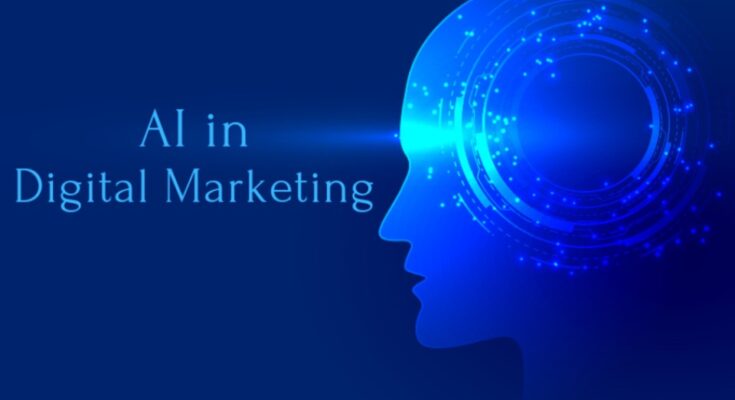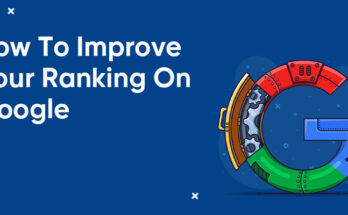Introduction to the Rise of AI in Digital Marketing
Artificial intelligence (AI) has rapidly infiltrated various sectors, and digital marketing is no exception. From personalization to data analysis, AI is revolutionizing how businesses interact with their audience. With its ability to process vast amounts of data and make real-time decisions, AI is becoming an indispensable tool for marketers, entrepreneurs, and tech enthusiasts.
In this blog post, we will explore how AI is changing the landscape of digital marketing. You’ll learn about the different ways AI is being used to personalize user experiences, create and curate content, target customers more effectively, and much more. By the end, you’ll have a clear understanding of why AI is a game-changer and how you can leverage it to boost your marketing strategies.
The Role of AI in Personalizing User Experiences
Personalization has always been a key component of effective digital marketing, but AI takes it to a whole new level. Traditional methods of personalization often rely on broad categories and segments, which can miss the mark. In contrast, AI allows for hyper-personalization by analyzing individual behaviors, preferences, and interactions in real-time.
Hyper-Personalization with AI
AI algorithms can provide a highly personalized experience for each user. For example, AI can analyze a user’s browsing history, social media interactions, and past purchases to recommend products or content that are most relevant to them. This level of personalization not only improves user satisfaction but also increases conversion rates.
Dynamic Content Customization
AI enables dynamic content customization, where the content displayed on a website or in an email can change based on the user’s behavior. Imagine visiting an e-commerce site and seeing product recommendations that perfectly match your style and preferences. This is made possible through AI-driven personalization.
Real-Time Interaction
Chatbots powered by AI can engage with users in real-time, providing instant responses to queries and guiding them through their customer journey. These chatbots can understand natural language, making interactions feel more human and personalized. Brands like Sephora and H&M use AI chatbots to enhance customer service and drive sales.
How AI is Being Used in Content Creation and Curation
Content is king in the digital marketing world, and AI is proving to be a valuable ally in both creating and curating content. By automating repetitive tasks and providing data-driven insights, AI frees up marketers to focus on strategy and creativity.
Automated Content Creation
AI-powered tools like GPT-3 can generate high-quality content in a matter of seconds. These tools can write blog posts, social media updates, and even product descriptions, all while maintaining a consistent brand voice. Companies like Forbes are already using AI to produce news articles, demonstrating the technology’s potential.
Content Curation
AI can also assist in content curation by analyzing large volumes of data to identify relevant content for your audience. Tools like Curata and Scoop.it use AI to find, organize, and share content that resonates with your target audience. This not only saves time but also ensures that the content you share is highly relevant and engaging.
Enhancing Creativity
AI doesn’t just automate; it also enhances creativity. Tools like Canva use AI to suggest design elements, making it easier for marketers to create visually appealing graphics. Similarly, AI-driven video editing tools can automate the editing process, allowing marketers to produce high-quality videos with minimal effort.
AI’s Impact on Digital Advertising and Customer Targeting
Digital advertising is another area where AI is making a significant impact. From programmatic advertising to predictive analytics, AI is transforming how advertisers reach and engage their audience.
Programmatic Advertising
Programmatic advertising leverages AI to automate the buying and placement of ads in real-time. This ensures that ads are shown to the right people at the right time, maximizing ROI. AI algorithms analyze data to make instant decisions on which ads to display, leading to more efficient and effective campaigns.
Predictive Analytics
AI-powered predictive analytics can forecast customer behavior based on historical data. This allows marketers to target potential customers more accurately and with personalized messaging. For example, AI can predict which users are most likely to convert based on their past interactions, enabling more effective retargeting campaigns.
Enhanced Customer Segmentation
Traditional customer segmentation often relies on demographic data, which can be limiting. AI, however, can analyze a plethora of data points, including behavioral and psychographic data, to create more nuanced customer segments. This allows for more precise targeting and personalized marketing efforts.
Case Studies of Successful AI Integration in Marketing Strategies
Real-world examples can provide valuable insights into how AI can be successfully integrated into marketing strategies. Here are a few case studies that highlight the effectiveness of AI in digital marketing.
Coca-Cola’s AI-Driven Campaigns
Coca-Cola uses AI to analyze social media mentions and customer feedback. This data-driven approach helps the brand understand customer sentiment and preferences, allowing for more targeted and effective marketing campaigns. The result is higher engagement and improved brand loyalty.
Starbucks’ Personalized Marketing
Starbucks leverages AI to provide personalized recommendations and offers to its customers. By analyzing data from the Starbucks app, AI algorithms can suggest drinks and food items based on individual preferences and past purchases. This personalized approach has led to increased customer satisfaction and sales.
Netflix’s Content Recommendations
Netflix is renowned for its AI-driven recommendation engine. By analyzing viewer behavior, Netflix can suggest shows and movies that are tailored to each user’s tastes. This not only enhances the user experience but also keeps subscribers engaged, reducing churn.
The Future of AI in Digital Marketing and Potential Challenges
The future of AI in digital marketing is promising, but it’s not without its challenges. Understanding these potential hurdles is crucial for marketers looking to integrate AI into their strategies.
Advances in AI Technology
AI technology is continually advancing, offering new opportunities for marketers. From voice recognition to augmented reality, the possibilities are endless. Staying ahead of these trends will be key to maintaining a competitive edge.
Ethical Considerations
With great power comes great responsibility. The use of AI in marketing raises ethical questions, particularly around data privacy and algorithmic bias. Marketers must ensure that their use of AI is transparent and ethical, prioritizing customer trust and data security.
Implementation Challenges
Integrating AI into existing marketing strategies can be challenging. It requires a significant investment in technology and talent. Marketers need to be prepared for a learning curve and be willing to adapt their strategies as they gain insights from AI.
Conclusion
AI is undeniably changing the game in digital marketing. From personalizing user experiences to enhancing content creation and curation, AI offers numerous benefits that can help marketers drive engagement and conversions. However, it’s essential to approach AI with a clear strategy and ethical considerations in mind.
For those ready to take the plunge, the integration of AI can lead to significant improvements in efficiency, customer satisfaction, and ROI. Don’t get left behind; start exploring how AI can transform your marketing strategies today.



